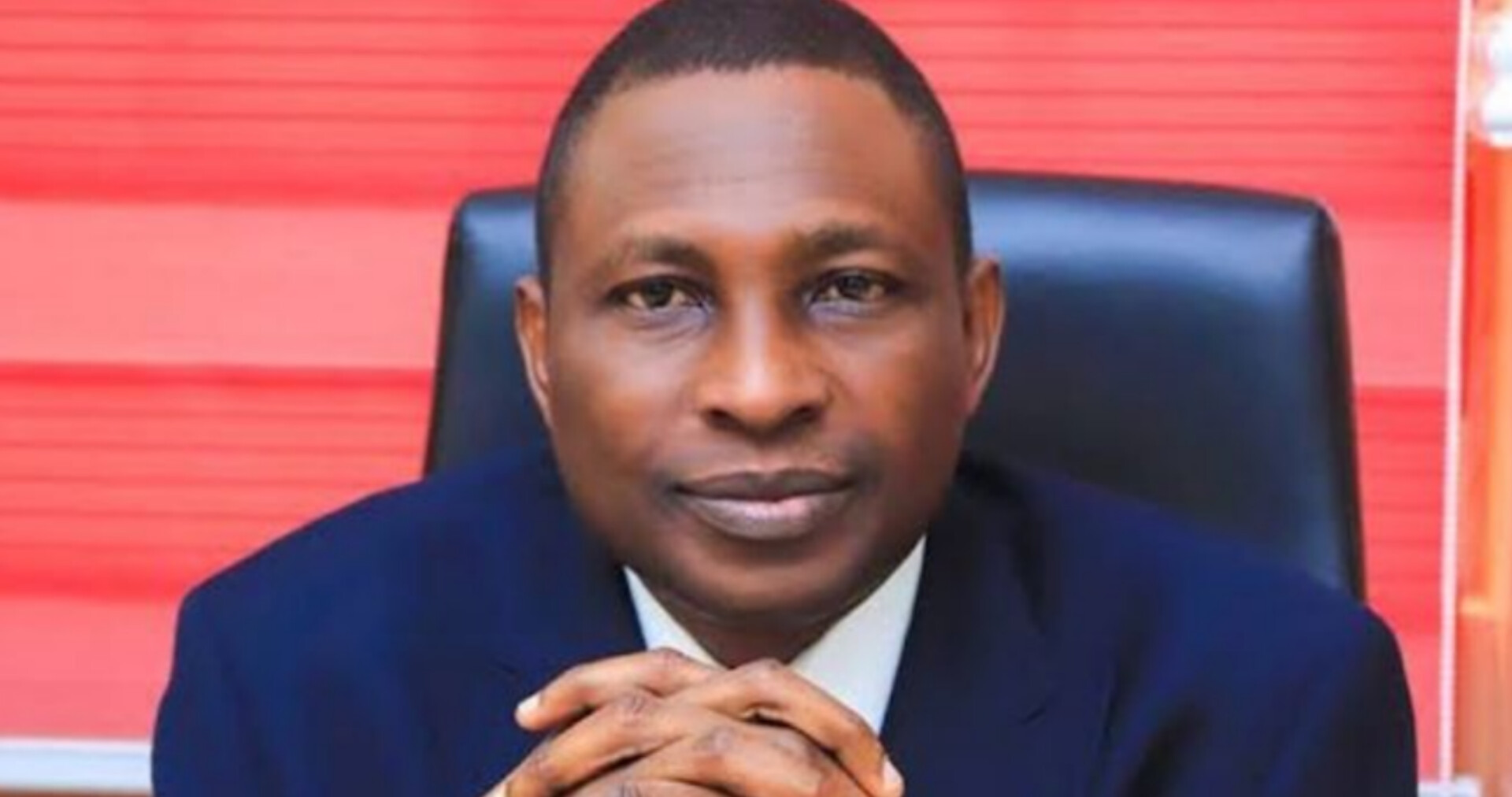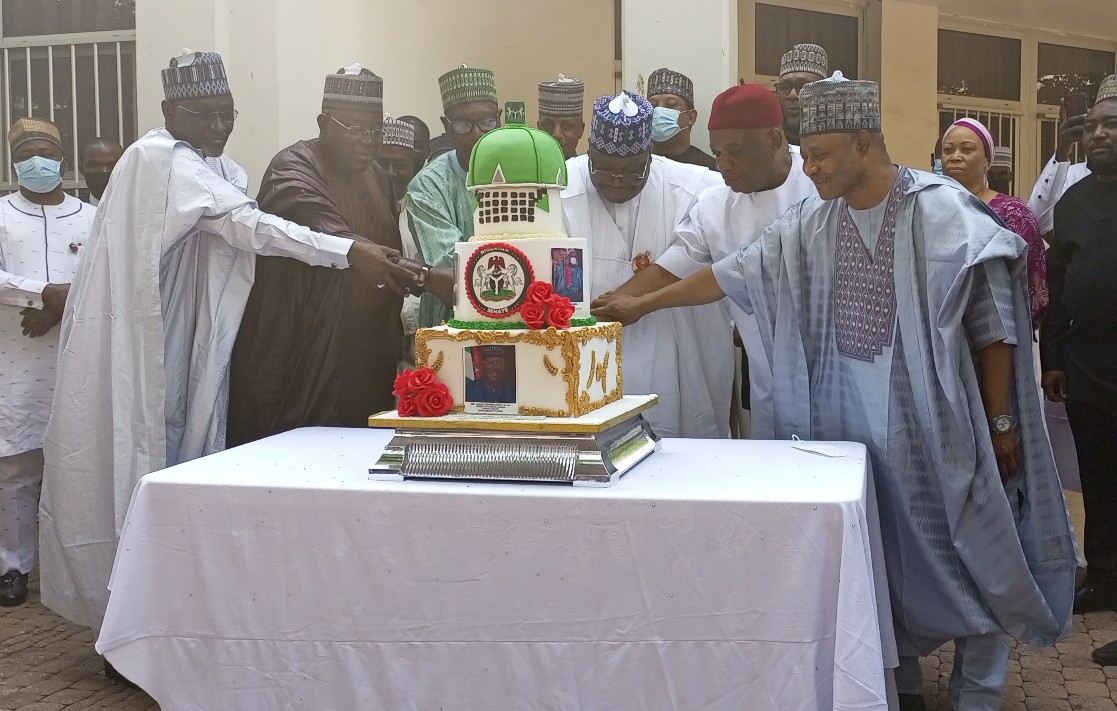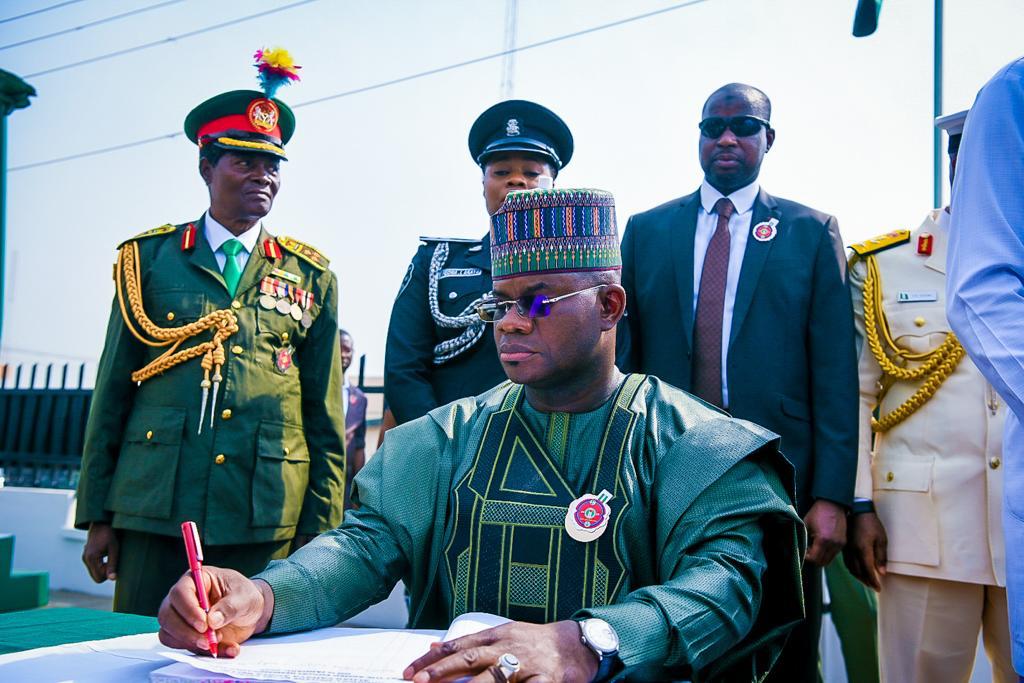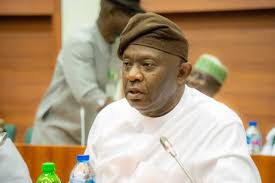***As Senate confirms him as EFCC Chairman despite protests from Nigerians
The New Economic and Financial Crimes Commission (EFCC) Chairman Mr. Ola Olukoyede has said the anti graft agency under his watch will work hard to prevent corruption by blocking leakages
speaking on Wednesday during his screening at the floor of the Senate he said instead of spending more money fighting corruption he will spent less to prevent it adding that the time has come for all anti-corruption agencies to focus more on prevention than enforcement.
He addressed the Senate before he was confirmed as the new Chairman of the antigraft agency on Wednesday
Mr Ola’s appointment was greeted with protests from some Nigerians who said his appointment did not follow the act establishing the agency
However, the new czar of the EFCC said enforcement is a very strong tool l in the hands of the agency which it is going to apply very seriously.
According to him
“The savings of an average civil servant in Nigeria all through his service years cannot build the type of houses they are building and cars they are riding.

“The problem we have is just like the proverbial monkey that was locked up in a cage with a bunch of ripe banana. The owner stood outside with a cane. The monkey would either eat the bananas got beaten and be alive, or allow the bananas to get rotten and die of hunger.
“Everyone wants to live a luxurious life and the incentives are all over the places. I will do more in the areas of blocking the leakages.
“Without downplaying the importance of enforcement. There is what we calle transactional credit system. If we continue to allow Nigerians to buy houses, cars and other luxurious properties by cash, because we don’t have an effective credit system, 1000 anti-corruption agencies will not do us any good and that is the reality.
“We must create an atmosphere to make sure that people have choices. If I don’t steal money, can I afford to train my children in school with good standard? If I don’t steal money, can I buy a car after I have worked for five years?
“If I don’t steal money, can I put three room bungalow in place after I had worked for 20 years? An average Nigerian does not own a home, when he has the opportunity, he would steal. Even if he did not have the opportunity he would create one
On the criminal justice system he said,
“In order to encourage our criminal justice system to work, the substance should be taken above technicalities. We must encourage our criminal justice system to adjudicate in such a way that it will not drag for a very long time.
“Prosecution should not be allowed to last for maximum of five years from the Court of first instance to the Supreme Court. The Senate can work on that very seriously.
“If we make the administration of criminal justice system really work, you will see the great work the anti-corruption agencies are doing.
“I did a survey between 2018 and 2020 on fifty entities in Nigeria. Both human and corporate entities. I picked just one scheme, one specie of fraud, which is called contract and procurement fraud. I discovered that within the three years, Nigeria lost N2.9trn.
“When I put my figures together, I discovered that. If the country had prevented the money from being stolen, it would have given us 1000 kilometers of road, it would have built close to 200 standard tertiary institutions. It would have also educated about 6,000 children from primary to tertiary levels at N16m per child.
“It would have also delivered more 20,000 units of three bedroom houses across the country. It would have given us a world-class teaching hospital in each of the 36 states of the country and the federal capital territory.
“This is where we are coming from, this is where we are. Where we are going, depends on the decision the Senate would take this afternoon.”




